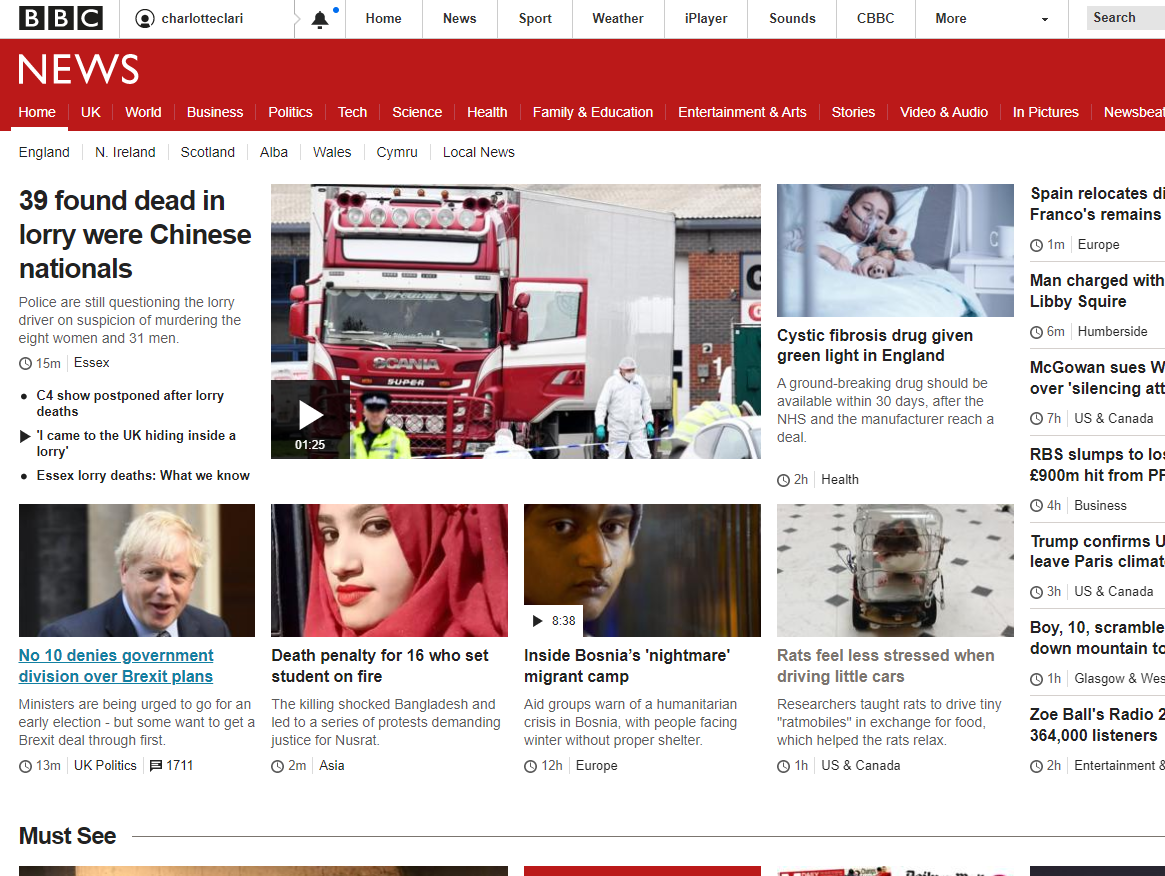
The BBC could do more to support the wider media industry and link to other news websites, broadcast regulator Ofcom said today.
It comes after commercial news bosses argued the BBC’s online coverage “fell short” at sourcing or attributing stories to external publications and that it “could do more to drive traffic to their websites”.
Ofcom found the vast majority of links in BBC news stories were internal, to other BBC web pages, while just over one in ten external links took readers to UK newspaper websites.
The regulator said in March it would look at the quality, relevance and trustworthiness of BBC News output across TV, radio and online and published its findings today.
The BBC’s operating licence, which is set by Ofcom, says it must provide “adequate” links to third party online material, particularly in news stories, to help “provide its users with a wealth of information while also supporting other providers within the industry”.
“In doing so the BBC should exercise careful judgment about the links that it offers,” the licence terms continue.
As part of the review, the BBC told Ofcom it focuses on improving the quality rather than quantity of links used when complying with this part of its licence.
Eighty-five per cent of links within stories on the BBC News website were internal to other BBC pages, according to Ofcom’s analysis.
For the external links, 41 per cent linked to tweets, 20 per cent to the websites of businesses or organisations, 12.5 per cent to UK newspapers, 11 per cent to international media, and 7 per cent to academic journals.
This compares to more than 80 per cent of external hyperlinks from Mail Online and Mirror Online going to broadcasters, newspapers and other online publishers.
In its report, Ofcom said: “The BBC’s internal website links provide an important service to online users.
“These links connect readers to ‘explainers’ elsewhere on the BBC website, as well as in-depth analysis and commentary, helping them gain a better understanding of stories in the news.
“But our work indicates that the BBC could provide more links to external, third-party content. External links support the wider industry and benefit audiences by providing access to a wider range of material.”
Ofcom now plans to gather evidence, which will include formally requesting information from the BBC, to “establish if it should do more to link to outside sources”.
It will also look at the wording of the operating licence to decide whether it is still appropriate “given changes in news consumption”.
Last year News UK chief operating officer and News Media Association chairman David Dinsmore attacked the BBC for “directly challenging core tabloid journalism” with stories about reality TV show Love Island and “serial poopers”.
He accused it of “chasing online traffic by publishing popular news content which bares no resemblance to the BBC’s charter commitments” in a speech made at Press Gazette’s Digital Journalism Summit.
Reach editor-in-chief Lloyd Embley has also accused the corporation of not following the “spirit” of its charter by seemingly chasing clicks.
A spokesperson for the NMA said it has “long called for the BBC to improve its sourcing and attribution to news media publishers who are by far the biggest investors in UK news provision”.
Pointing to the “extremely low” figure of 12.5 per cent of BBC external links that go to news media organisations, the spokesperson went on: “A significant increase of links to news websites would rightly credit the originators of the news stories.”
Ofcom reported that a number of commercial news bosses had shared concerns about the BBC’s online output straying into editorial areas that were traditionally the domain of newspapers, in particular lifestyle, celebrity and entertainment stories.
The BBC said that as young audiences are interested in a broad range of news, including the environment and culture, it has been adapting the tone and agenda of its online output to make it more relevant to them.
Ofcom’s researchers found the BBC’s online news “broadly reflects” its broadcast output with most prominence given to politics, business, economics and international affairs stories.
This gave it a similar editorial focus to the Telegraph, Guardian, Buzzfeed and Huffpost online, Ofcom said.
The Sun, Mail and Mirror’s websites were more focused on lifestyle, celebrity and entertainment news, Ofcom added.
Read Ofcom’s full review of BBC News.
Email pged@pressgazette.co.uk to point out mistakes, provide story tips or send in a letter for publication on our "Letters Page" blog
